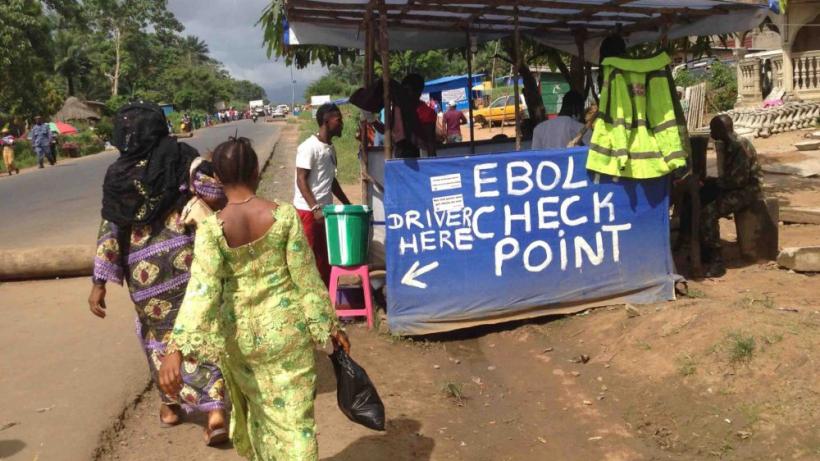
The economic impacts of Ebola
While the human costs of the 2014 Ebola outbreak that devastated West Africa were obvious, the economic impacts of the crisis were poorly understood. IGC, through its Economics of Ebola initiative, helped bridge this research gap, allowing us to provide evidence-backed policy advice to the governments of Liberia and Sierra Leone in their efforts to recover and strengthen their health systems and economies.
What is the challenge?
With a death toll of 11,315 from the Ebola outbreak, global attention post-crisis was rightly focused on public health systems and preventing future crises. However, the outbreak also caused significant damage to affected economies, but little credible data and evidence was available to understand exactly the economic impact of the crisis.
Addressing the problem
Through its Economics of Ebola initiative, IGC supported Liberia and Sierra Leone’s governments and development partners by providing credible data to ensure that policy responses were evidence-based through a series of research projects across both countries. IGC also centrally collated both IGC and non-IGC research through a series of bulletins and a website to make policy implications easily accessible to governments and development organisations.
Research results
- Distrust of government is likely to have contributed to the spread of Ebola in Liberia. A survey of over 1,500 residents in Monrovia found that people who expressed distrust in government were 9% less likely to support control policies – such as the government-imposed curfew and ban on public gatherings – and 7% less likely to comply with them. Findings also showed door-to-door outreach was effective in gaining public cooperation in the fight against Ebola, and for building trust in government more generally – of the 40% of citizens who experienced government-organised outreach, 90% report that it had been well-received.
- Health systems were more resilient than most believed. IGC researchers polled 7,500 Liberians via SMS in the spring of 2015 and found little evidence that Ebola had discouraged survey respondents from seeking treatment for health problems not related to the disease.[footnote]Morse B, Grépin KA, Blair RA, et al. Patterns of demand for non-Ebola health services during and after the Ebola outbreak: panel survey evidence from Monrovia, Liberia. BMJ Global Health 2016;1:e000007. doi:10.1136/bmjgh-2015-000007[/footnote]
- Liberia’s economic downturn during the Ebola outbreak was severe. An IGC study found 12% of businesses surveyed across Liberia during the peak of the Ebola crisis (Sept-Nov 2014) reported to have closed down since they were first surveyed in 2012, far exceeding Africa’s average business closure rate of 5% annually. During the outbreak, the average number of employees per business in the Monrovia area declined by 47%. Economic slowdown was not confined to areas of the country that experienced high infection rates – in counties with fewer cases of Ebola, the average number of employees per business fell by 24%.[footnote]Bowles J, Hjort J, Melvin T, et al. Ebola, jobs and economic activity in Liberia. Journal of Epidemiology & Community Health 2016;70: 271-277.[/footnote]
- Informal economic activity in Sierra Leone was depressed by the outbreak. IGC research showed a decline in household heads working in urban areas from 75% in August to 67% in November 2014, with most of the decline among those working in nonfarm household businesses. The research also showed that Ebola had not impacted nationwide food prices, with prices for basic foods remaining at or below prices in previous years. However, the number of traders in markets for some goods was sharply below previous years.
Impact on policy
IGC continues to play a vital role in supporting Liberia and Sierra Leone, where in-country teams have worked closely with governments during the critical post-Ebola recovery period. In Sierra Leone, IGC fed directly into the Government’s post-Ebola strategy document, which was published in 2015.
In 2015, IGC received a $900,000 grant from The Rockefeller Foundation to support its partnership with the Government of Sierra Leone to build a more resilient national health system in the wake of the Ebola crisis through revising their national strategic plan for a cadre of community health workers.
IGC is also guiding national and international policy on building resilience to shocks such as Ebola through the LSE-Oxford Fragility Commission, which will release its findings and policy recommendations in 2018.

